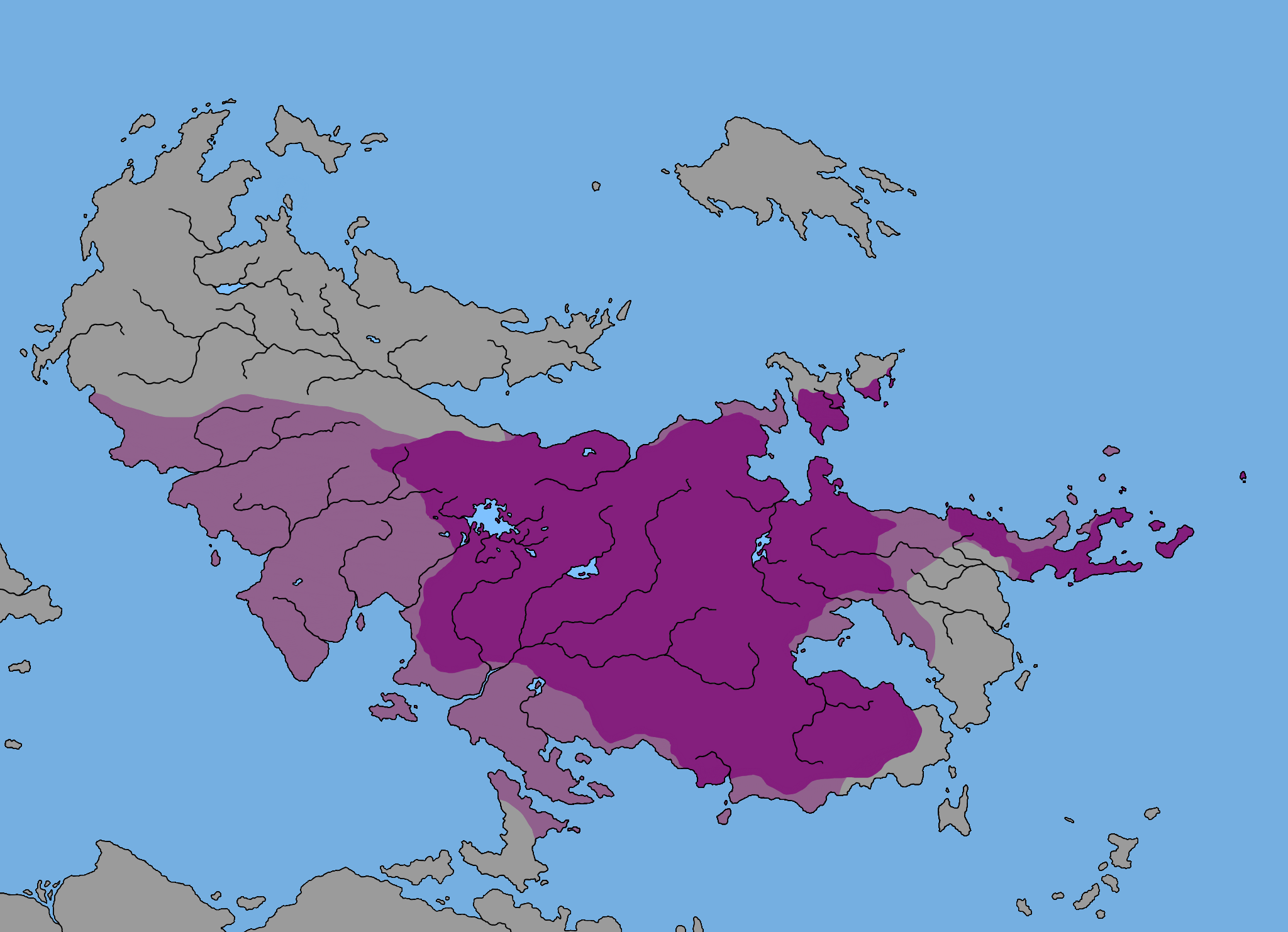Ancient Selcian
Ancient Selcian is a now extinct language that was spoken by the Selcians, an ethnic group which dominated much of Arros during the First Age, and before The Long Winter brought the Orromians from Enaskia in the west, and the Naurcians from Old Naurcia to the east. Despite the language now being extinct, it gave birth to numerous other languages, which are still spoken today by tens of millions of people in Arros.
History
It is unknown when ancient Selcian first formed, or where exactly in Arros it first spawned. Nevertheless, by the end of the First Age, groups of people, mostly hunter gatherers and nomads from the Peryn forest, all the way to The Fork, including most of central Arros, spoke regionally mutually intelligible dialects of the same basic language. However, as centuries past, and with the arrival of the Long Winter, these groups, who were at most, very early farmers, were hit very hard. The small amount of trade happening between tribes stopped as each community, including their dialect became isolated. This eventually lead to the creation of separate Selcianic languages by the start of the Second Age. With the arrival of the Orromians from the Continent of Enaskia in the west, and the expansion of Naurcians in the east and south, these groups, who were now speaking different Selcianic languages, were forced to either assimilate with the newcomers, or migrated elsewhere, usually to central Arros. Those that migrated towards Central Arros, are known today as the Selcianic peoples, and speak a family of languages that are all part of the Selcianic family. Some of them, mostly those that are closer to each other geographically, are somewhat mutually intelligible. Because of that last fact, and the high number of migrations into each other's territory, a large number of stories, legends and idioms, that used to be told in Ancient Selcian, were now shared between each other, in their own respective languages.Geographical Distribution
At its peak, Ancient Selcian was spoken throughout most of Arros, from northern Paxolia, south to Shorai and Gysia, and east across the Roynian plains, and north into Alvaros and Heoria, all the way to the Fork. Its various dialects covered more than half of the entire continent, and its speakers formed the largest population on the continent by far.
Sentence Structure
Ancient selcian, as well as all of the languages that evolved from it over time, like Kavasian, Eglazian and Arthesian use the same SVO basic structure. Adjectives generally come after the noun, but can more rarely be placed before, mainly for emphasis. This is a trait that is shared by some Selcianic languages, such as Arthesian, but not all of them, most notably Kavasian and Alvarosian.
Spoken by
Common Idioms
-How's the morning-
(Used as an informal greeting to strangers, family, and friends alike. A normal response would be "Sunny" meaning good)
-May you be blessed-
(Used either as a polite farewell between strangers, which means "Be well" or less commonly to wish future mothers good luck with their pregnancy)
"Safe travels, may you be blessed!"
"She is with child, may she be blessed"
-The dog hears nothing-
(Used to describe an inattentive person, usualy a child)
"Is he even listening?! Halin's grace, that dog hears nothing"
-How's your dogs?-
(Used to ask how things are, or how is someone doing. Generally not used between strangers)
"Hey! Haven't seen you in a while! How's your dogs?"
-Bite your tongue-
(Means to keep a secret)
"You better bite your tongue about this!"
-You're acting/behaving like the moon's out- (Said to someone that looks/acts/sounds stressed agitated or otherwise behaving out of normal. The Moon mentioned here is Veos, which is known to alter the behavior of Soulmages)
"What's with you today? You're acting like the moon's out!"
-Don't catch yourself in chains-
(Generally meant as a warning to not get complaisant, or to be wary of tricks and ruses.)
"Whatever dude, just don't catch yourself in chains..."
"I bet you're gonna catch yourself in chains going in there"
-Looking for moons in a cave-
(It basically means that someone is trying to do something impossible)
"Its not gonna work. He's looking for moons in a cave"




Great work on all the history. Would love some maps to go with this article to better visualize the movement of the languages! The idioms are lots of fun.
Thank you! A map may or may not be in the works rn!